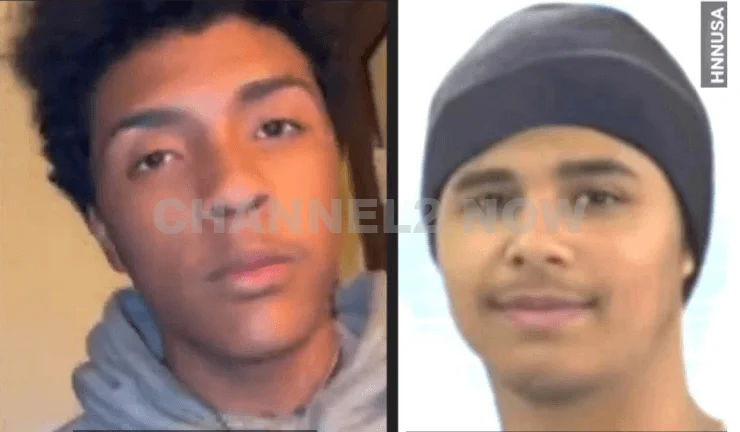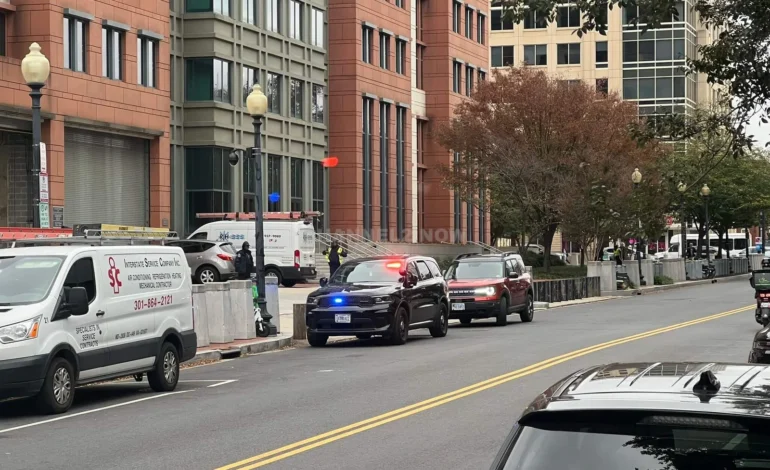
Christian Martin 18-Year-Old Charged with First-Degree Intentional Homicide in Fatal Shooting of 15-Year-Old Nelson Manuel López Correa
Christian Martin 18-Year-Old Charged with First-Degree Intentional Homicide in Fatal Shooting of 15-Year-Old Nelson Manuel López Correa: Milwaukee County District Attorney’s Office Issues Felony Arrest Warrant in Case Involving Love Triangle, Surveillance Footage, and Alleged Retaliation; Family Prepares “Justice for Nelson” March to Demand Accountability and Address Youth Gun Violence
Milwaukee, WI — On November 8, 2024, the Milwaukee County District Attorney’s Office officially filed a criminal felony charge against 18-year-old Christian Martin, holding him accountable for the October 28 shooting that claimed the life of 15-year-old Nelson Manuel López Correa. The young victim, described by his family as a “gentle and kind-hearted teenager,” died from a gunshot wound to the head sustained during an altercation near the 1600 block of W. Forest Home Avenue. As the tragic events continue to shake the Milwaukee community, both legal proceedings and community responses are in full motion, with López Correa’s family organizing a march demanding justice for the teen.
Background and Chronology of Events Leading to the Tragedy
According to the criminal complaint filed by the Milwaukee County District Attorney’s Office, the series of events that led to the tragic death of López Correa were rooted in a personal conflict. The 15-year-old was spending time with a girl he had recently begun dating and another male friend when he encountered Martin, the alleged shooter, who had previously dated the same girl. On the day prior to the incident, Martin reportedly reached out to the girl, possibly hoping to rekindle their relationship or clarify unresolved issues. However, their interaction that day only intensified tensions.
On October 28, the situation escalated when Martin discovered the girl in the company of López Correa at a bus stop near W. Forest Home Avenue. Upon seeing the two together, Martin reportedly confronted the girl, initiating a tense exchange. According to statements from witnesses and information detailed in the criminal complaint, the girl made it clear to Martin that she no longer wished to pursue a relationship with him. Martin’s response was physical; he allegedly struck the girl on her side, an action that foreshadowed the tragic violence to come.
Details of the Shooting Incident and Eyewitness Accounts
As López Correa and the girl stood by the bus stop, an area frequented by local teens after school hours, Martin allegedly acted on his anger. Based on the criminal complaint and corroborated by surveillance footage obtained by Milwaukee police, Martin approached López Correa from behind and opened fire, hitting the young teen in the head. In a moment that would haunt her, the girl witnessed the horrifying scene, fleeing the area in terror and taking refuge at a nearby gas station. The other male teen who had been with López Correa earlier had briefly left to check the bus schedule, only to hear the gunshot as he returned. Witnesses described the aftermath as chaos, with bystanders struggling to process what had happened and attempting to render aid to the mortally wounded López Correa.
Surveillance cameras in the vicinity captured crucial moments of the crime, including Martin’s alleged approach and subsequent shooting. The footage, now in the hands of the Milwaukee Police Department’s Homicide Unit, is expected to play a central role in the prosecution’s case against Martin. Investigators have noted that the visual evidence corroborates witness statements and helps paint a clearer picture of the events that led to the fatal encounter.
Legal Proceedings: Charges Filed and Arrest Warrant Issued
In the days following the shooting, detectives gathered evidence, compiled witness statements, and analyzed surveillance footage, leading the Milwaukee County District Attorney’s Office to charge Martin with first-degree intentional homicide with the use of a dangerous weapon. This serious charge reflects the intentional and premeditated nature of the crime. If convicted, Martin faces a life sentence without the possibility of parole, a stark reminder of the severe consequences associated with gun violence and the toll it takes on both victims and perpetrators.
On November 11, the court issued a felony arrest warrant for Martin, formalizing the charges and marking the next stage in the legal process. Authorities are now focused on locating Martin and bringing him into custody, emphasizing that the warrant empowers law enforcement agencies to pursue all legal means to apprehend him. The Milwaukee Police Department has called upon the public for assistance, urging anyone with information about Martin’s whereabouts to come forward and assuring that all tips will be handled confidentially.
Impact on López Correa’s Family and the Community’s Grief
For the family of Nelson Manuel López Correa, the days following the tragedy have been filled with unimaginable pain. Friends and relatives describe López Correa as a joyful and considerate teenager with aspirations for the future. He was known to be close with his family and actively involved in his local community, where he had made many friends. His untimely death has left a profound void, not only within his immediate family but also within the broader Milwaukee community.
As they navigate this difficult time, López Correa’s family has chosen to channel their grief into a call for justice and action against youth violence. They have planned a peaceful march, titled “Justice for Nelson Manuel López Correa,” set to take place on November 16, 2024. The march aims to honor López Correa’s memory, raise awareness about the destructive impact of gun violence, and demand accountability for his tragic death. Family members, friends, community activists, and local leaders are expected to attend, unified in their pursuit of justice and commitment to preventing similar tragedies.
Organizing the “Justice for Nelson” March: Community Mobilization
The “Justice for Nelson” march will commence at 9:30 a.m. at S. 16th Street and W. Forest Home Avenue, near the site of the shooting. After a gathering of reflection and speeches, participants will march to the Milwaukee Police Department’s District 2 Station at 245 W. Lincoln Avenue. This route holds symbolic significance, serving as both a journey through López Correa’s neighborhood and a visual demonstration of the community’s solidarity and resolve.
The march is expected to be attended by hundreds, including youth organizations, local activists, and members of Milwaukee’s various cultural communities. The organizers have encouraged participants to wear blue, a color they say represents both peace and resilience, and to bring signs honoring López Correa’s life and demanding justice. Family members have expressed hope that the march will not only bring visibility to their tragedy but also inspire a broader dialogue about preventing youth violence and supporting safer communities.
Reflections on Youth Violence and Community Safety in Milwaukee
López Correa’s death is the latest in a troubling pattern of youth violence in Milwaukee, a city that has seen rising crime rates and an increase in incidents involving young victims and perpetrators. Community leaders and residents are increasingly concerned about the availability of firearms and the escalation of conflicts among teenagers, often ending in irreversible consequences. Milwaukee Police Chief Jeffrey Norman has emphasized the need for preventive measures, including better resources for youth and more opportunities for positive community engagement.
Local organizations dedicated to reducing gun violence, such as the Milwaukee Youth Council and the Center for Youth Advancement, have offered their support to López Correa’s family and are actively participating in the upcoming march. Leaders from these groups have underscored the importance of addressing the root causes of violence, such as limited access to mental health resources, a lack of educational and job opportunities, and inadequate community support systems.
Legal Analysis and Next Steps for the Case
As Christian Martin’s case moves forward, legal experts are weighing in on the potential challenges and considerations the prosecution may face. First-degree intentional homicide is one of the most severe charges in Wisconsin’s criminal code, and prosecutors must prove beyond a reasonable doubt that Martin intended to kill López Correa. The presence of surveillance footage, witness statements, and the reported altercation between Martin and the girl may serve to strengthen the prosecution’s case. However, Martin’s defense may attempt to contest aspects of witness reliability or argue mitigating circumstances.
If Martin is apprehended, he will face an initial court hearing where charges will be formally presented, followed by a preliminary hearing to assess the evidence’s sufficiency. Given the gravity of the charges, bail is unlikely to be granted. Legal analysts anticipate a rigorous trial process, during which the prosecution will need to establish both the intent behind the shooting and the sequence of events leading to López Correa’s death.
Public Reactions and the Role of Community Engagement
Milwaukee residents have expressed a range of emotions in response to the tragic incident. Some are angry, questioning how such violence could occur within their neighborhoods. Others are reflective, calling for increased community responsibility in addressing conflicts before they escalate to violence. Social media platforms are filled with messages of condolences for López Correa’s family and calls for justice, with many emphasizing the need for comprehensive reform and support for Milwaukee’s youth.
The “Justice for Nelson” march is expected to amplify these calls for accountability and to spur conversations about lasting solutions to the city’s challenges. Community leaders hope that by coming together in López Correa’s memory, they can advocate for changes that prioritize the safety and well-being of all residents, particularly vulnerable youth. Some organizers are proposing a series of follow-up events, such as workshops and discussion panels, to keep the momentum going and ensure that the tragedy leads to meaningful change.
Conclusion: A Community United for Justice and Change
As Milwaukee prepares for the “Justice for Nelson” march and the legal case against Christian Martin progresses, the community stands at a crossroads. López Correa’s death is a heartbreaking reminder of the urgency with which issues like gun violence and youth safety must be addressed. The community’s response—demonstrated by the march, the support for López Correa’s family, and the calls for policy changes—reflects a shared commitment to creating a safer, more supportive environment for young people.


